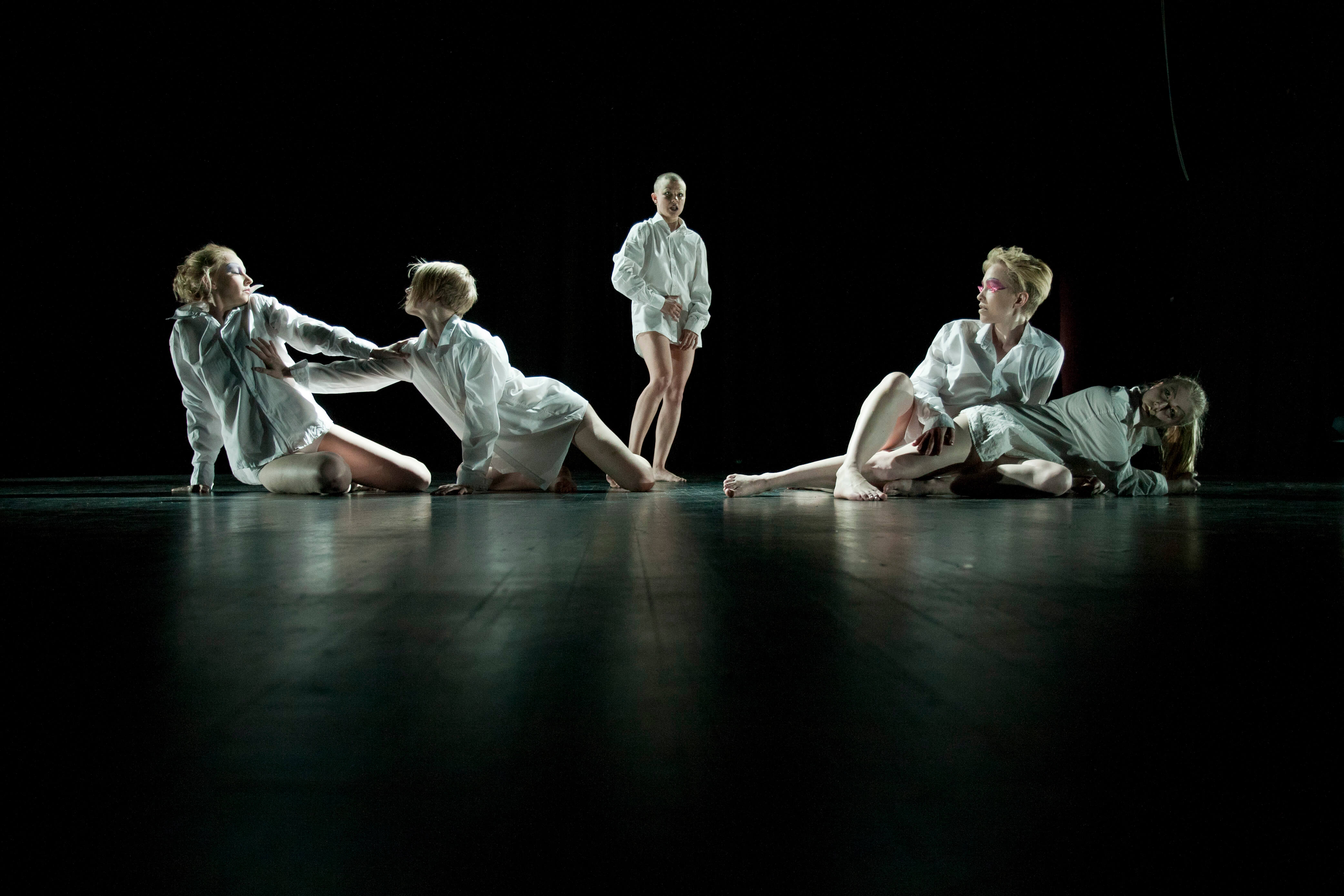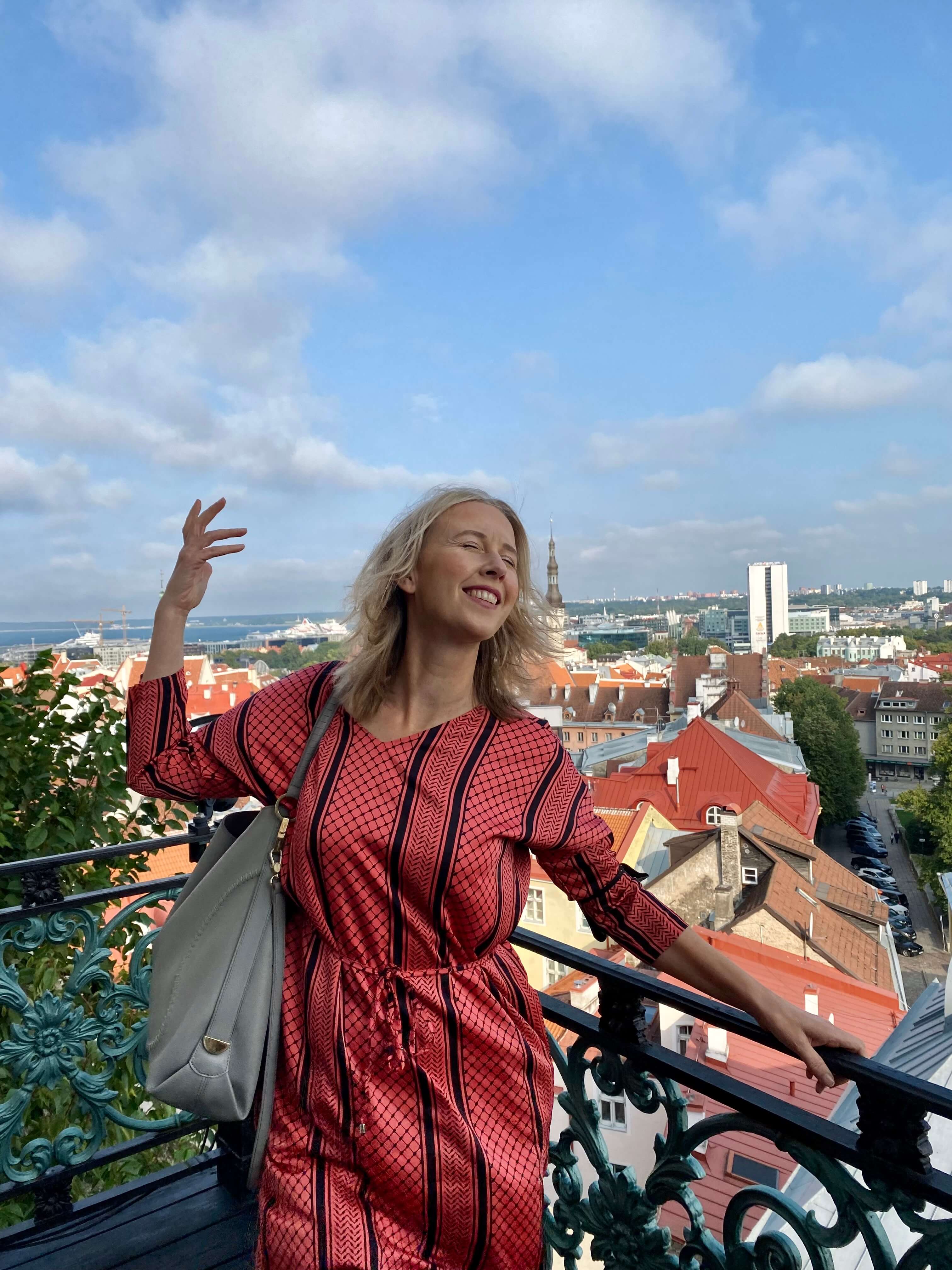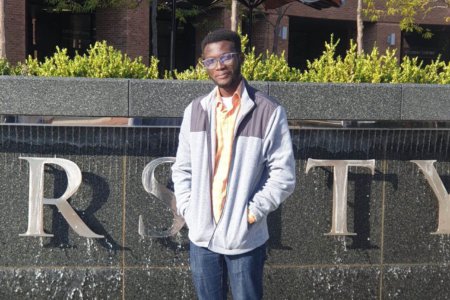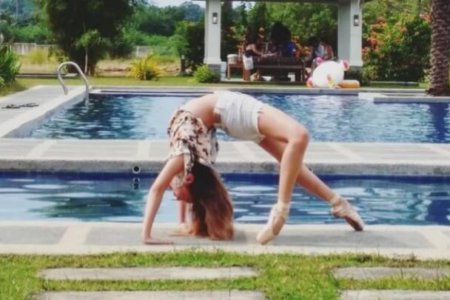
A contemporary artist uses a combination of materials, methods, concepts and subjects that challenge the boundaries of the 20th century. Think Andy Warhol with his famous soup cans — or Heli Meklin from Helsinki.
Her work is all about sliding identities, femininity and masculinity, wildness and domestication, plus all the layers in human and non-human interaction. One popular project of hers “In Your Mind” portrays the tale of two comic transgender cowboys bored of their routine habits.
For over 10 years, Meklin pursued a career in contemporary arts as a dancer, performer and choreographer. Then, one day, she realised working as an artist wasn’t her true calling so she decided to jump into business law. Below we talk to her about why she chose this path, her studies at Aalto University, and what advice she would give her younger self:
Walk us through your career in contemporary arts. Do you have any favourite projects you can share with us?
My work was structured around projects that constantly took me to a variety of different locations around the globe. I believe this is quite normal for a life as a contemporary artist or, at least, it was before the pandemic.
I would work alone or as a part of changing working groups which consisted of artists from different fields and multiple nationalities. For the large part (in the productions), I was responsible for the idea and artwork creation.
I was also handling the fundraising, scheduling, marketing and PR, logistics, contacting the venues, producers and curators, and so on. I worked mainly within Northern and Central Europe but work also took me to locations like Southeast Asia, West Africa and the US.
“Bruce and More” was one of my favourite performances from my early career. It was a format of some a physical stand-up comedy that explored themes of identity and pretence. This was portrayed how I modified my physical appearance to people I admired like Bruce Willis, Bruce Dickinson, etc.
I like physical humour and I find it joyful and intimidating to be laughed at on stage. This performance certainly was one of those moments. Another project from my late career which is a favourite is called “Just Queens”.
The idea came from Finnish choreographer, Satu Herrala, who co-directed the work with another choreographer. The format of the performance was a drag show where we appeared as several females, males, animals and divine characters.
It wasn’t just the theme or format of the performance but it was the beautiful energy, movement and verbally undefinable fresh area of dance that was strongly present in this performance.

“It wasn’t just the theme or format of the performance but it was the beautiful energy, movement and verbally undefinable fresh area of dance that was strongly present in this performance,” Meklin tells Study International. Source: Heli Meklin
What made you decide to pursue business law from there?
For many years, I had been unsatisfied with working in contemporary arts. I felt I was somehow in the wrong place and I don’t know how or why to continue.
At the same time, I believed contemporary arts (specifically in dance) was the only meaningful way to be in the world so I had difficulty letting this go. To further add, the financial struggle was always present as financing arts and artists are very far from adequate and sustainable.
One day in December I got a rejection from a grant I worked hard for and it made me feel a little relieved and inspired me to stop. It became very clear and I decided to give myself a month to not make any plans and have some space to think.
During that month, someone told me I would make a great corporate lawyer and I wasn’t sure what that meant so I had to research it. I assigned myself to a basic law course to learn more and realised that I was quite good at it. That’s how my career began with business law.
What made you pursue business law at Aalto University School of Business?
I wanted to strengthen my understanding in areas related to business, economics and finance in addition to my legal studies. The Business Law programme at Aalto provides a great opportunity for that.
What I found important as well as the high reputation of the uni along with the quality of teaching and high work integrity of students. Also, the chance to build connections and be able to work while studying was an added benefit.
What were your most outstanding classes?
I’m still in the middle of my studies and have probably many outstanding classes yet to come. For me, outstanding is to have a possibility in general to study subjects that I find interesting and want to learn more about.
How did you successfully apply for your jobs in compliance and real estate? Walk us through your interview process.
I didn’t get any financial support for my studies so I knew I had to work. This gave me the motivation to apply for a job, “inspiration out of desperation” as a friend of mine says.
I thought it would be good to start gaining work experience from the new field during my studies as I wasn’t young anymore and my career would be shorter compared to someone starting in their 20s. Compliance was a field where I could combine my legal studies and interest in banking.
There’s also a need for people in this industry due to tightening regulations around financial institutions. The interview was about five minutes with a young guy who didn’t want his time wasted and kicked me out because I wanted to work part-time instead of full-time.
Luckily, the HR person noticed I was a good catch and some months later connected with me on LinkedIn and approached me with an interview for another team. I got accepted and I agreed to work full-time.
If I survived more than 10 years as a freelance artist, combining a full-time role and my studies in business law should be a piece of cake. Once I got the job, I was very enthusiastic and rapidly took on more responsibilities.
Within less than a year, I got promoted to lead the team. Alongside my colleagues, we’ve grown the team six times the size and now I’m about to take my next career step and will soon start in a new position in the company which will widen my knowledge in banking.

“I wanted to strengthen my understanding in areas related to business, economics and finance in addition to my legal studies. The Business Law programme at Aalto provides a great opportunity for that,” she says. Source: Heli Meklin
A career as an artist may sound very alien for most but there are a lot of skills and experience that can be applied straight to other fields. You must just find a way to communicate that.
Before I found this opportunity, I did a big amount of research and learning. I also realised that during my artist career I had actually been working in several jobs relating to business law and the financial industry.
My work in real estate is something I don’t really consider as a job but more of an activity in my free time. I buy, renovate and rent apartments in central locations. I’m doing this on a small scale but still aim to buy objects that have development potential. It might one day become a career for me, who knows.
What advice do you have for other graduates who want to venture into law and business?
I would advise fresh graduates to be both ambitious and humble. Apply for positions you’re keen on but at the same time, understand that things take time and experience as well.
Explore different areas and get experience in other fields too. Law and business are structures that operate in most areas of society.
If you could go back in time for a one-on-one mentoring session with yourself, what would your advice be?
Learn to recognise what it is that intrigues you and courageously follow that. Also, it’s totally okay to change the plan without explaining it to anyone.
I’ve learned that if I see something interesting, even in a way that I don’t comprehend, it’s better to follow it. Whether it’s choosing which classes to take, what uni to apply for, living with someone, or so on, it will take me somewhere meaningful.
If it doesn’t, it’s not the end of the world either.
What matters more to you: work satisfaction, salary, social life or a work/life balance?
After spending over 10 years in a career with zero financial security and belonging to a gender with historically lower pay, I give a high emphasis on a proper salary and other forms of income.










